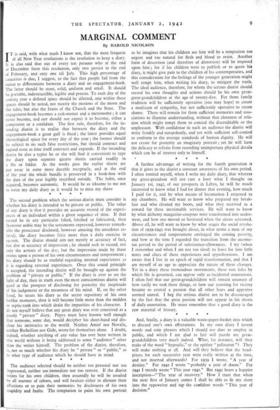The audience selected should be neither too personal nor too
impersonal, neither too immediate nor too remote. If the diarist writes for his own children, then assuredly he will be assailed by all manner of taboos, and will hesitate either to alienate their affections or to pain their memories by disclosures of his own stupidity and faults. The temptation to paint his own portrait as he imagines that his children see him will be a temptation too urgent and too natural for flesh and blood to resist. Another form of discretion (and therefore of distortion) will be imposed upon him ; for if his children were to publish or to quote his diary, it might give pain to the children of his contemporaries, and this consideration for the feelings of the younger generation might well tempt him, when writing his diary, to mitigate the truth. The ideal audience, therefore, for whom the serious diarist should record his own thoughts and actions should be his own great- great-grandchildren at the age of twenty-five. For them family tradition will be sufficiently operative (one may hope) to create a modicum of sympathy, but not sufficiently operative to create shame. There will remain for them sufficient memories and asso- ciations to illumine understanding, without that closeness of rela- tion which might tempt them to conceal the discreditable or the unpleasant. With confidence in such an audience the diarist will write frankly and outspokenly, and yet with sufficient self-control to conform to the average standards of human dignity. He will not create for posterity an imaginary portrait ; yet he will have the delicacy to refrain from recording unimportant physical details which can be of interest only to himself.
• * * * *


























 Previous page
Previous page